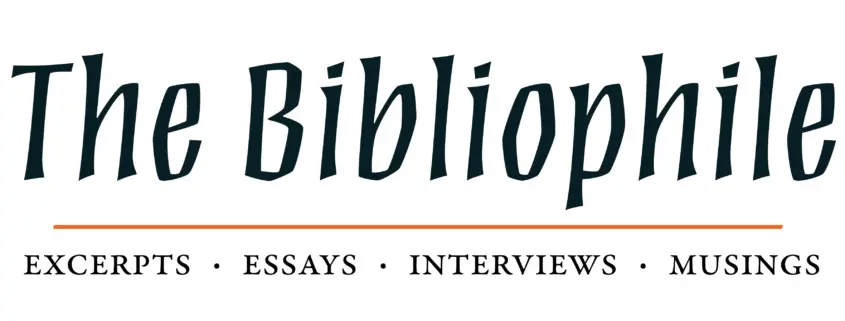The Bibliophile: Backlist Is a Fiction (But Overstock Is Far Too Real)
Want to get new excerpts, musings, and more from The Bibliophile right away? Sign up for our weekly newsletter here!
***
I’ve been thinking a lot in recent months about backlist. For those unfamiliar with the term, backlist refers to a given publisher’s catalogue of previously published titles that remain in print and available to the market. The designation distinguishes those books from frontlist, the ones that a publisher has only recently published, usually over the past year, and is still actively working to promote. The Oxford English Dictionary, which credits first use to Stanley Unwin in his 1946 edition of The Truth About Publishing, says that it is a catalogue of “books still available for sale by a publisher or bookseller, but no longer classified by him as ‘current’ or ‘new.’” Backlist is therefore a relatively new concept in publishing, less than eighty years old, though a tremendous amount of ink, both in contracts and media, has been spilled on the subject since.

Photo: Biblioasis inventory (seen above) is meticulously tracked by Emily Stephenson-Bowes, our Operations Manager
The majority of a publisher’s available catalogue, unless they’ve only started or have published limited runs for a set market, will almost always be backlist; and generally speaking, the more a publisher’s sales come from the backlist, the healthier and more stable they are. Backlist makes up anywhere between 50–80 percent of the average multinational’s sales, though for smaller independent publishers, perhaps especially in Canada, it’s quite often a fraction of this. At Biblioasis, we’re in a relatively healthy position, with 35–40 percent of our sales coming from our backlist of more than four hundred titles (though, in truth, only a small percentage of our backlist titles contribute much to these sales). There’s only one trade book in our soon-to-be-twenty-year history that’s gone out of print. A decade ago, in the Globe and Mail, Mark Medley wrote, exasperated, that in his time covering Canadian books, he’d “never met a publisher more convinced of the greatness of their every book,” and asserted that I believed we’re getting stronger every year. I’m still that publisher, I still believe that our list, almost every year, is better than the last (and yes, this year’s is the best ever), and I’ve therefore made a commitment to keep all of our books, whenever humanly possible, available for people to discover.
***
As most reading this likely know, I got my start in books twenty-six years ago by opening a used bookstore, which means most of my bread and butter was backlist and out-of-print books. I was always much more thrilled to discover a signed Whitman photo in a moldy banana box (true story!) than to get my hands on the hottest new release; very little has changed in the intervening years. It was the near-constant demands I received for certain out-of-print regional history books—especially Marty Gervais’s The Rumrunners—that started me thinking about publishing in the first place, so the press in a very real way was formed to service backlist. And as the primary buyer for our current bookshop—now majority new—I’ve paid particular attention to growing our backlist holdings over the past five years; as a result, our sales have more than doubled. It struck me that, for many readers—at least to judge by our own shop, they are getting younger—backlist is a fiction: every unread book, every undiscovered author, is a new discovery to a reader, no less fresh and current than a title only released last Tuesday. To the TikTok generation, Dostoevsky may well be just another angsty, bearded hipster; and thanks to TikTok we sell a lot of Dostoevsky. If I could just get the best of what we’ve previously published in front of more people, including Caroline Adderson’s A History of Forgetting, Russell Banks’s Foregone, Mike Barnes’s Sleep Is Now a Foreign Country, Clark Blaise’s This Time, That Place, Mark Bourrie’s Bush Runner, Randy Boyagoda’s Original Prin, Craig Boyko’s Psychology and Other Stories, Graeme Macrae Burnet’s Case Study—and I’ve only quickly skimmed through to the B’s (forgive me, dear authors, any omissions: you were next on the list!), I think people would be thrilled with what they find.
Despite the promise that the internet would make everything available, as things have shifted from enthusiasts to algorithms real discoverability has never been harder. The relentless focus on the new, the current and the forthcoming, has made it increasingly difficult for books published only a few months earlier to discover their readers, let alone books published seasons before. If you can’t find a review anywhere, if it’s not available, even spine out, on a bookseller’s shelves, what chance does a reader have to find it? There’s nothing new about this complaint. It’s even getting hard to keep new books on warehouse shelves: storage costs have gone through the roof, and one major distributor we work with has been pressuring client publishers to destroy every single book that is returned, billing publishers as much as 20 percent of list price merely to restock it. It’s destructive and, in my view, unethical, merely another example of large, almost monopolistic corporations putting profit ahead of purpose. Publishers are pressured to adopt new technologies, such as print-on-demand, to service all backlist requirements (and even some frontlist ones), and we’ve made use of it as we’ve needed to. But too often the quality isn’t close enough to minimum standards of our usual offset printing; when I was in Cincinnati this past March and found a POD edition of one of our books on the shelves at Downbound, I was very disappointed with its appearance, a disappointment that has only amplified over the ensuing months. I wouldn’t have bought that edition of the book, and I do not doubt that others have picked it up and put it down for the same reason. Which is a real shame, because it was one of the best books we published in the last year.
***
So as a result, we’ve resisted relying overmuch on POD; we’ve resisted letting our distributor pulp our books immediately on return to the warehouse; we’ve tried to resist as long as possible pulping any of our books. It was one of the reasons we purchased our nine-thousand-square-foot building here in Windsor: to try and control our storage costs and to ensure that we could keep everything available. But the costs are still catching up with us: between our various warehouses, storage costs could be as high as 50,000 dollars this year: to a small press like ours, that is an awful lot of money. So: we’ve embarked on our first major (and only second overall) stock reduction in twenty years: we remain as committed as we ever have been to keeping all of our books in print, but we need to reduce inventory and attendant fees. We’ve offered the authors of affected books the opportunity to buy stock at a small fraction of the cover price; we’re looking into remainder options where it makes sense; and we’ll be pulping what we can’t reduce through other means, while maintaining enough stock to handle sales well into the future. If we need to reprint a book at a later date to supply demand, we will do so: at this point that is still a much cheaper option than paying for additional storage. And, finally, we’re also offering readers the opportunity to stock up on some exceptional books at a fraction of the cover price: from hundreds of titles, at five dollars a book. You can pick up the aforementioned Adderson and Blaise and Boyagoda and Boyko (though not the Bourrie or the Burnet!), and many others, books that I still love (All Things Move and As You Were and The Iconoclast’s Journal and Martin John and The Party Wall and Zolitude, to scan the alphabet in five titles) as much as some of the new books we’re excited to put before you in the coming months. So, please, stock up: it’s taken twenty years for us to reach this point, and if I have my way it’ll be twenty more before we have a sale like this again.
Just do me a favour: if you read something you love, please tell someone: word of mouth still remains the best recommendation engine, and every single one of these authors and books deserves to be more widely discovered and read. Thank you, and happy reading (and ordering).
Dan Wells
Publisher
***
Keep up with us!
- Hello, Horse by Richard Kelly Kemick released on August 6, 2024, was praised in The Miramichi Reader and The British Columbia Review.
- The Utopian Generation by Pepetela (trans. by David Brookshaw) is coming out on August 13, 2024.
- May Our Joy Endure by Kev Lambert (trans. by Donald Winkler) will be available on September 3, 2024.
- The Notebook by Roland Allen comes out the same day on September 3, 2024.
- A Way to Be Happy by Caroline Adderson can be purchased on September 10, 2024.
- The Pages of the Sea by Anne Hawk comes out in Canada on September 17, 2024.
- Comrade Papa by GauZ’ (trans. by Frank Wynne) will be published on October 8, 2024.







